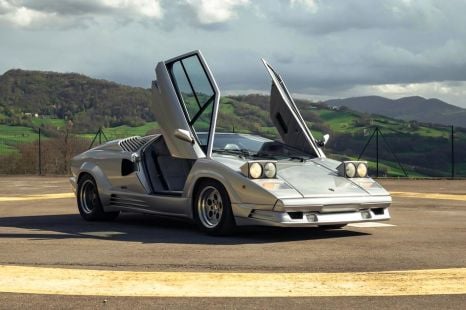

Anthony Crawford
1990 Lamborghini Countach review
6 Days Ago
The V8-powered LandCruiser 70 Series is soon to be no more – but is it worth trying to get a hold of one of these, or just get the four-pot?
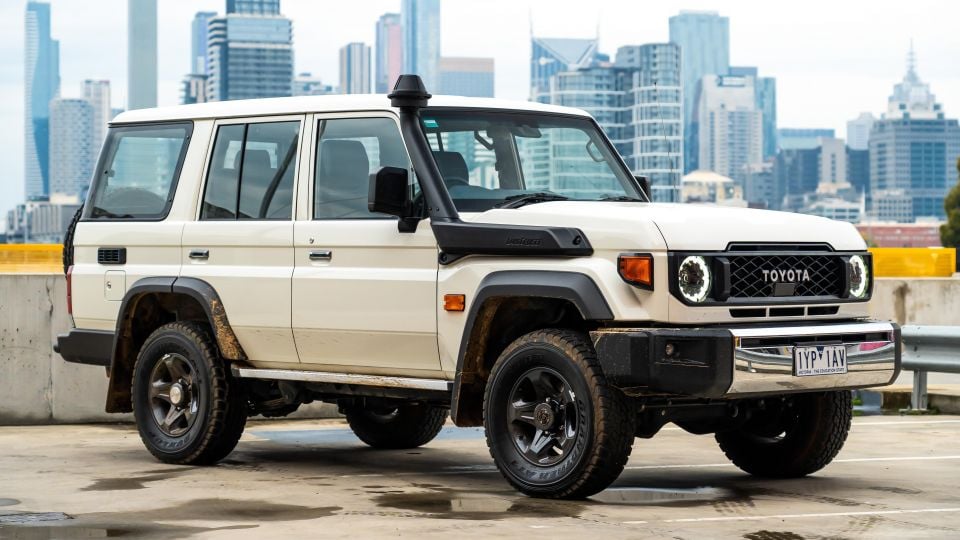
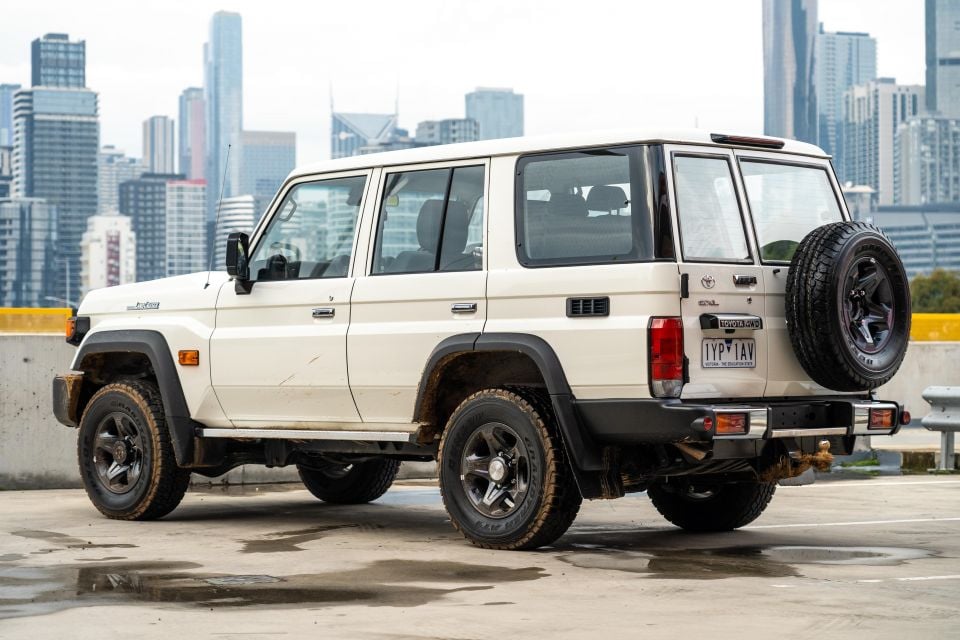

Quickly see how this car stacks up against its competition. Select any benchmark to see more details.
Where expert car reviews meet expert car buying – CarExpert gives you trusted advice, personalised service and real savings on your next new car.
The old king is dead, long live the king…

Toyota has announced the discontinuation of the Toyota LandCruiser 70 Series V8, and has stopped taking orders for its iconic off-roader.
If you already have one on order, Toyota is working to secure as many as it can for local customers between now and the end of 2025 – production of V8-powered 70 Series models will end in September 2024, except for 79 Series GXL single- and double-cab utes.
That means this 2024 Toyota LandCruiser 76 GXL Wagon, with a V8 diesel and five-speed manual, is on its way to retirement by year’s end.
Fear not though, the 70 Series will continue to be available with a reworked version of the 2.8-litre four-cylinder turbo-diesel shared with the likes of the HiLux and LandCruiser Prado. A new manual version is on the way too.
While you may not be able to order one anymore, if you already have one on the way or if you’re looking at a near-new example (that hopefully isn’t being subjected to price gouging), is it still worth a look?
Here, we’ll focus on the more daily duties one might use their LandCruiser 70 for – if you want to see how it fares off the beaten track, you can read our dedicated off-road review here.
If you wanted the 76 Wagon with the V8 turbo-diesel, the GXL was your only choice at $83,900 plus on-road costs.
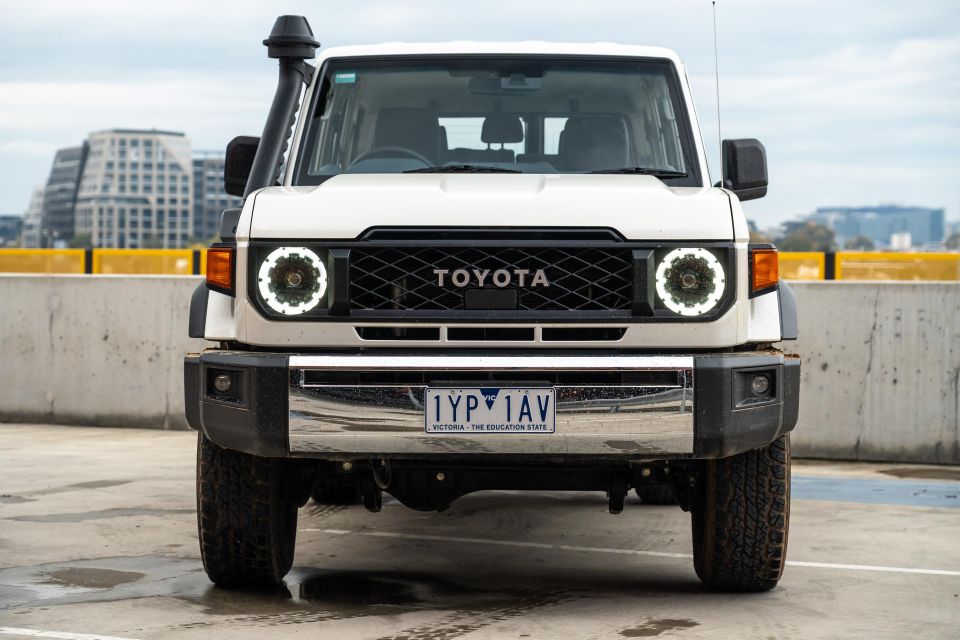
| Model | Price before on-road costs |
|---|---|
| 76 Series Wagon | |
| 2024 Toyota LandCruiser 76 Wagon Workmate 2.8TD 6AT | $75,600 |
| 2024 Toyota LandCruiser 76 Wagon GXL 2.8TD 6AT | $79,800 |
| 2024 Toyota LandCruiser 76 Wagon GXL 4.5TD 5MT | $83,900 |
| 78 Series Troop Carrier | |
| 2024 Toyota LandCruiser 78 Troop Carrier Workmate 2.8TD 6AT | $79,200 |
| 2024 Toyota LandCruiser 78 Troop Carrier GXL 2.8TD 6AT | $82,500 |
| 2024 Toyota LandCruiser 78 Troop Carrier Workmate 4.5TD 5MT | $83,300 |
| 2024 Toyota LandCruiser 78 Troop Carrier GXL 4.5TD 5MT | $86,600 |
| 79 Series Single-Cab Cab-Chassis | |
| 2024 Toyota LandCruiser 79 Single-Cab Cab-Chassis Workmate 2.8TD 6AT | $76,800 |
| 2024 Toyota LandCruiser 79 Single-Cab Cab-Chassis GX 2.8TD 6AT | $78,800 |
| 2024 Toyota LandCruiser 79 Single-Cab Cab-Chassis GXL 2.8TD 6AT | $80,900 |
| 2024 Toyota LandCruiser 79 Single-Cab Cab-Chassis Workmate 4.5TD 6AT | $80,900 |
| 2024 Toyota LandCruiser 79 Single-Cab Cab-Chassis GX 4.5TD 5MT | $82,900 |
| 2024 Toyota LandCruiser 79 Single-Cab Cab-Chassis GXL 4.5TD 5MT | $85,000 |
| 79 Series Double-Cab Cab-Chassis | |
| 2024 Toyota LandCruiser 79 Double-Cab Cab-Chassis Workmate 2.8TD 6AT | $79,300 |
| 2024 Toyota LandCruiser 79 Double-Cab Cab-Chassis GXL 2.8TD 6AT | $83,500 |
| 2024 Toyota LandCruiser 79 Double-Cab Cab-Chassis Workmate 4.5TD 5MT | $83,400 |
| 2024 Toyota LandCruiser 79 Double-Cab Cab-Chassis GXL 4.5TD 5MT | $87,600 |
To see how the LandCruiser 70 lines up against the competition, check out our comparison tool.
If you like a throwback, the interior of the 70 Series is a proper step back in time.
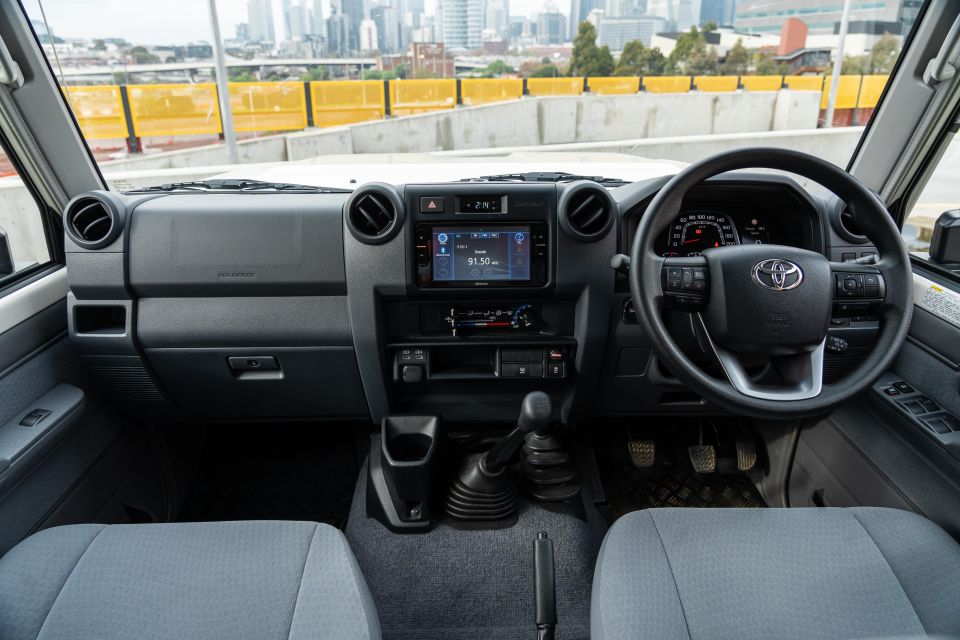
The upright and bluff design elements, the velour cloth trim, as well as the plastic gear knob and 4WD selector are suitably heavy duty and from another time.
Toyota has also preserved the retro HVAC controls, which include old-school sliders and rotary dials for temperature and fan speeds. No capacitive nonsense here….
Some changes have been applied with the facelift to make the interior of the 70 Series more modern, including a new touchscreen head unit with Apple CarPlay and Android Auto, as well as a revised instrument cluster with supervision display.
Multifunction steering wheel controls are also handy, bringing the 70 Series into the modern age to cover the basics but still retaining that old-school and heavy-duty feel inside.
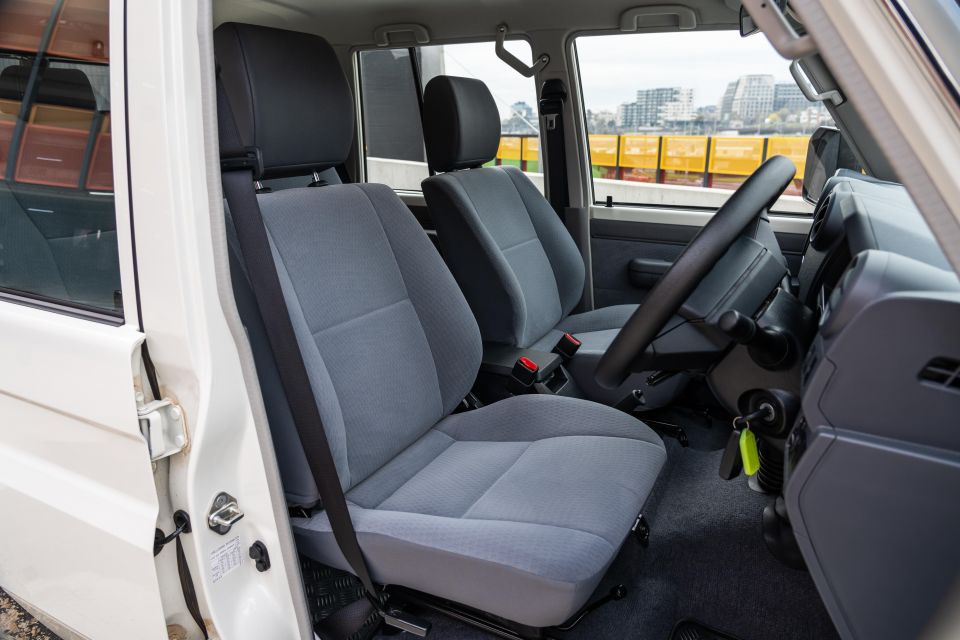
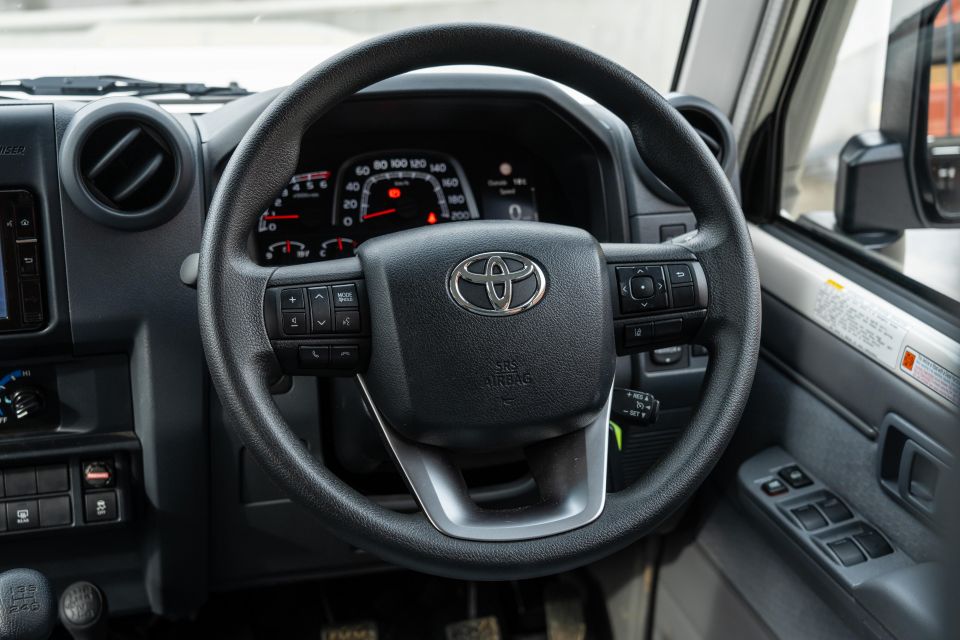
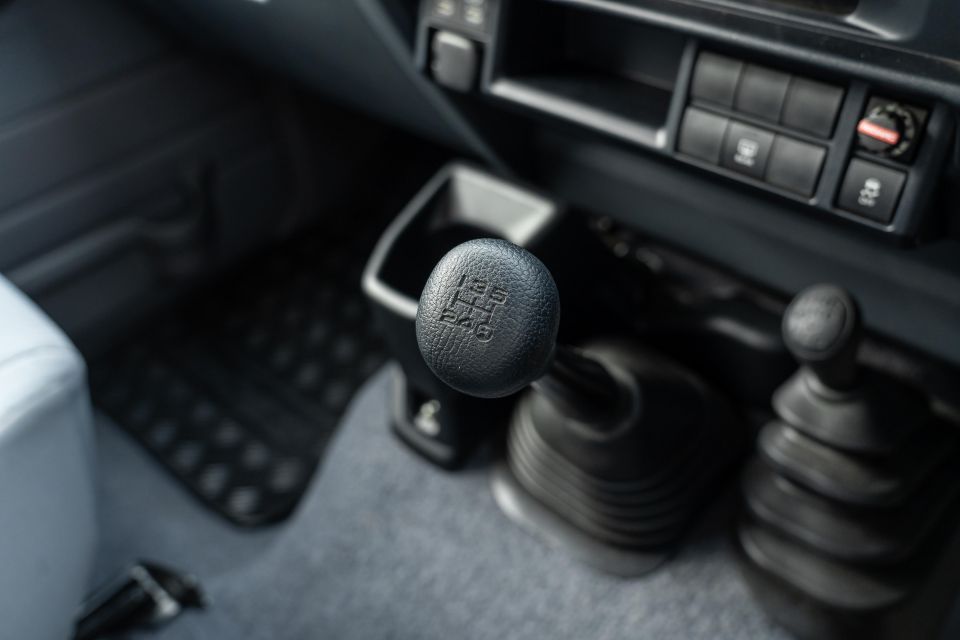
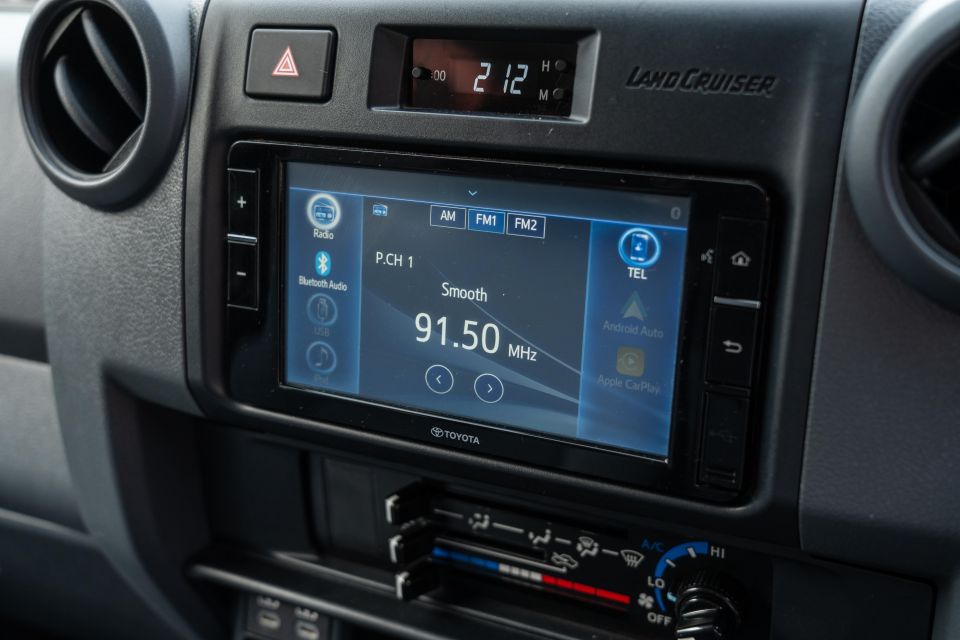
But it’s all still very basic and old-school. For example, the head unit may have smartphone mirroring but there’s really no where to actually store your phone when you have it plugged in, and the infotainment system itself looks and feels like a cheap aftermarket unit from a decade ago.
While the cushy front pews offer ample support, there’s minimal bolstering so you may lean and slide a bit in bends.
The urethane steering wheel won’t be your friend in the hot Australian summer, but the multifunction steering controls at least allow you to adjust volume, answer calls and adjust menus in the driver’s display in a way you couldn’t in the old car.
Not much else is modern about the front row, with circular air vents scattered throughout and little in the way of storage. You sit very high in the cabin, though there’s good visibility through the tall glasshouse – and the electrically adjusted mirrors in this spec are far more user-friendly than the old manual ones.
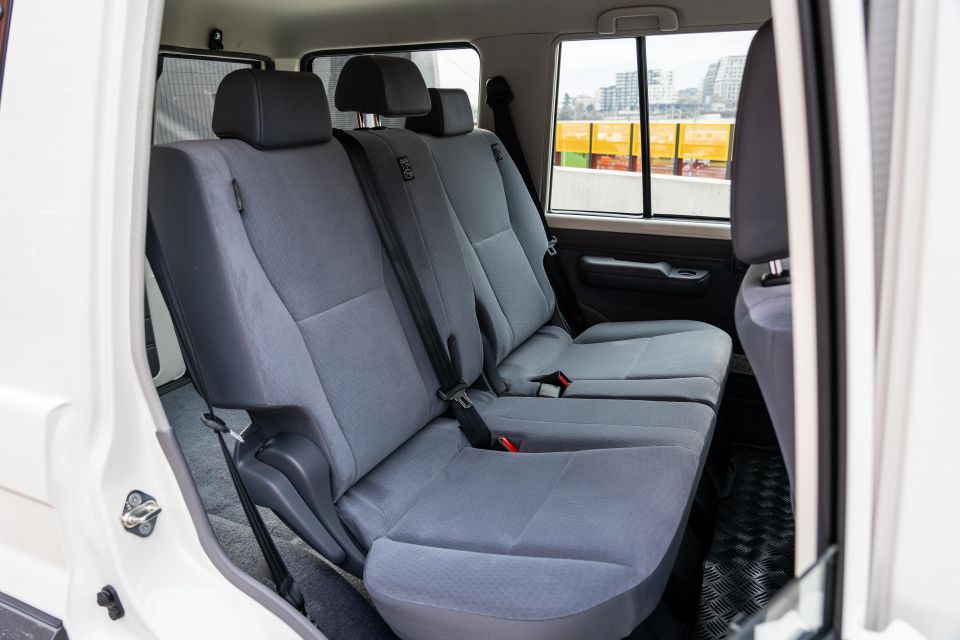
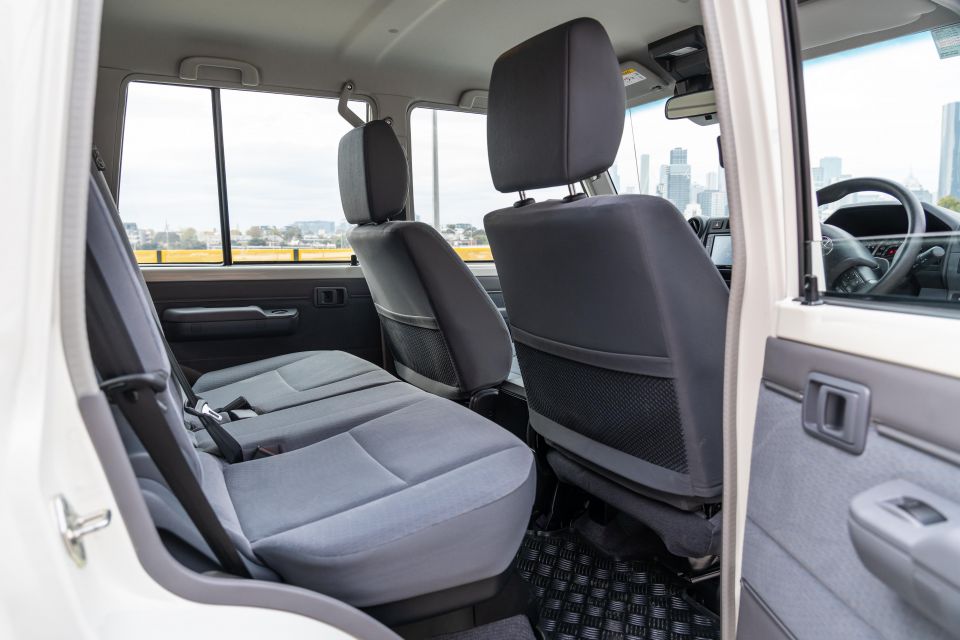
While the five-door wagon might seem like the practical choice in the 70 Series lineup, the second row isn’t exactly what I’d call capacious.
At 6’1 space in the rear behind a taller driver like myself is tight at best, not helped by the high floor and minimal toe room to slot your feet under the seat in front of you.
Like the front, there’s not a whole lot in the way of rear seat amenities. There are map pockets behind the front seats, and you can recline the rear seat backs.
Other than that, there are no cupholders, no ISOFIX anchors, no top tethers. Really, this is a back bench for incidental use if you need to take a couple of people with you on an adventure or around the worksite – no babies or kiddies.
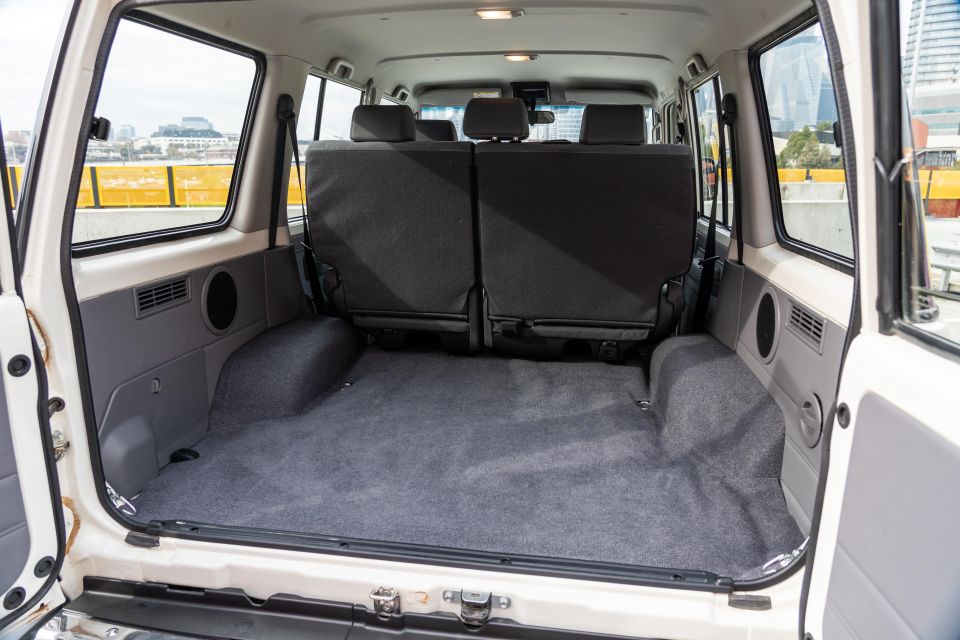
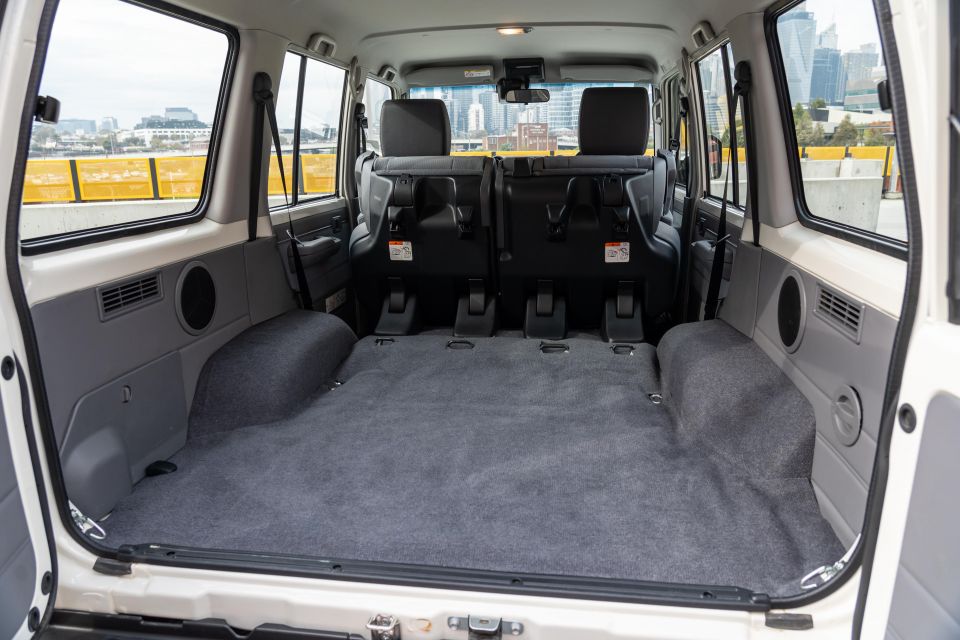
Toyota doesn’t quote a luggage capacity for any 70 Series model, and while the boot area is deep, the floor is very high and has pretty big wheel arch intrusion which reduces the area width.
If you need more space you can tumble the rear seats right forward, which extends the load area further. The full-size spare wheel lives on the back of the manual barn-door-style tailgate.
| Dimensions | Toyota LandCruiser 76 GXL V8 |
|---|---|
| Length | 4910mm |
| Width | 1870mm |
| Height | 1940mm |
| Wheelbase | 3180mm |
| Cargo capacity | N/A |
To see how the LandCruiser 70 lines up against the competition, check out our comparison tool.
The vehicle on test has the iconic 4.5-litre V8 turbo-diesel under the bonnet.
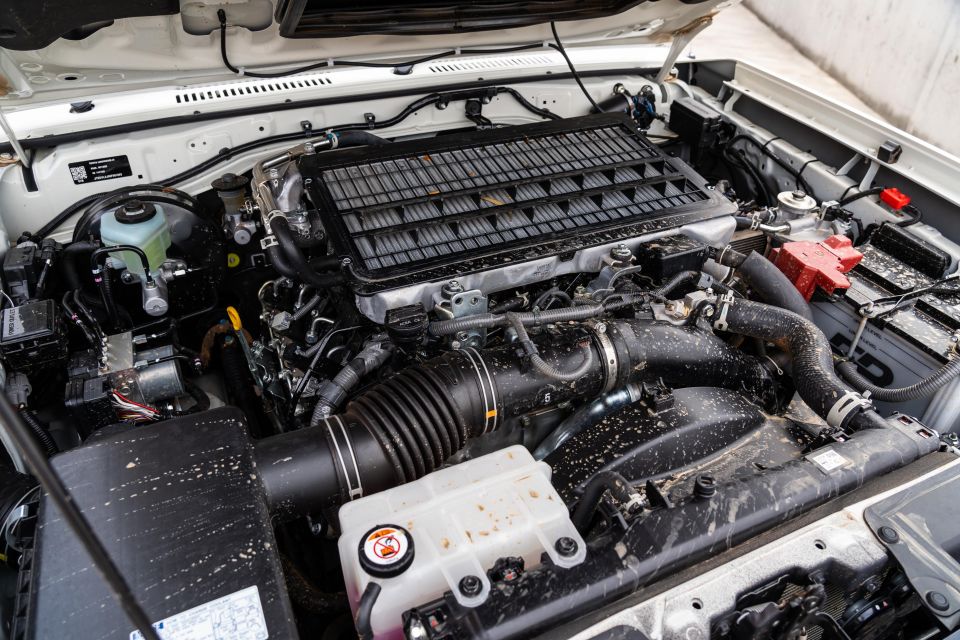
| Specifications | Toyota LandCruiser 76 GXL V8 |
|---|---|
| Engine | 4.5L V8 turbo-diesel |
| Power | 151kW @ 3400rpm |
| Torque | 430Nm @ 1200-3200 rpm |
| Transmission | 5-speed manual |
| Drive type | 4WD with low range |
| Top speed | 160km/h |
| Fuel economy (claimed) | 10.7L/100km |
| CO2 emissions (claimed) | 281g/km |
| Fuel tank | 130 litres |
| Weight | 2355kg |
| Payload | 1155kg |
| Braked towing capacity | 3500kg |
| Gross vehicle mass (GVM) | 3510kg |
| Gross combination mass (GCM) | 7010kg |
To see how the LandCruiser 70 lines up against the competition, check out our comparison tool.
While there have been a number of updates to the tech, as well as the option of a new four-cylinder diesel with automatic transmission, the V8’s on-road manners are more of the same.
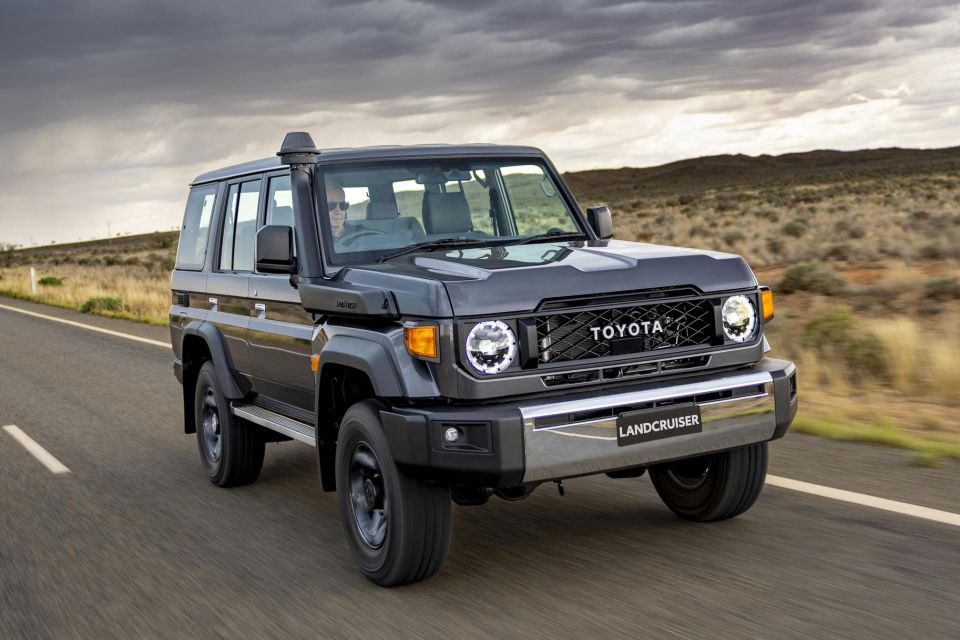
From the turn-key ignition to the hefty shift action, the LandCruiser 70 harks back to a motoring era of old.
The diesel engine up front is a noisy, gruff thing. It fires up noisily and then settles into this meaty, beast-like idle that is one of the key indicators that this isn’t running just a HiLux motor up front.
A springy clutch and rubbery shift action make it feel more like a truck, which can take a bit of getting used to in stop-start traffic, but it has so much torque that you’ll struggle to stall it, and it effortlessly gets off the line.
You can realistically start in second to avoid short-shifting from first after setting off, and at all speeds there’s plenty in reserve keep it moving.
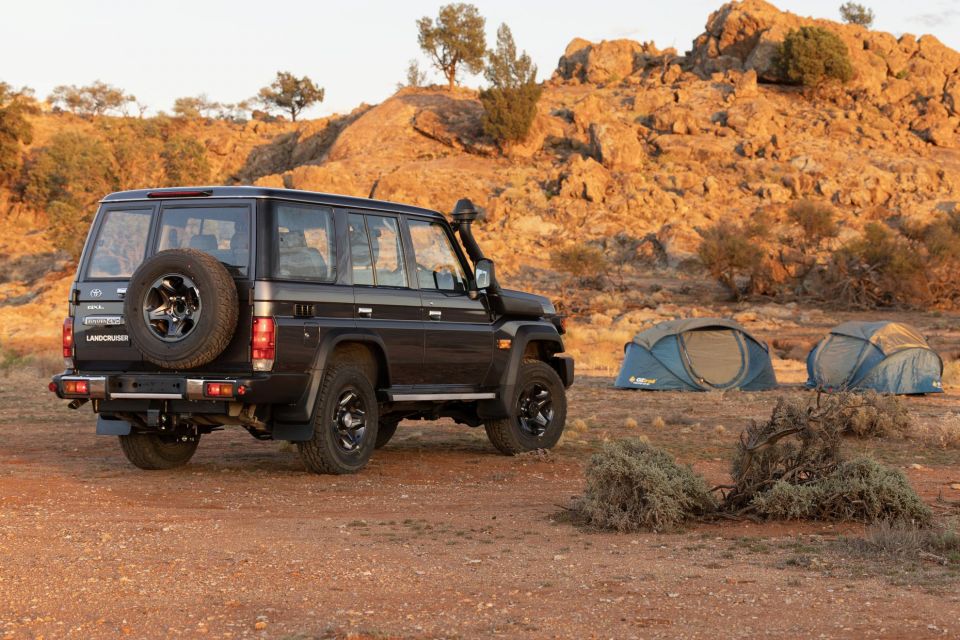
Fitted with heavy-duty leaf springs at the rear with rigid live axles at both ends, the LandCruiser 70 is perhaps a key reference point to how far the LandCruiser nameplate has evolved with context to the latest 300 Series and Prado.
It really does ride like an old ute, thudding over tram tracks and road joins, and bouncing occupants around even if you are going over pimply tarmac at lower speeds.
There’s plenty of engine noise and there’s a bit of wind whistle at higher speeds given this has the aerodynamic properties of a brick wall. For some, that’s exactly what 70 Series ownership is all about.
Despite being built as a heavy duty adventurer and hauler, the 70 Series isn’t necessarily at home on the open road. With just five gears the V8 engine is spinning at around 2500rpm at 110km/h, where its presence is always felt in the cabin.

The light and vague steering mixed with a lack of any lane keeping assistance also makes for constant corrections on the open road. Lane departure warning helps somewhat, but by the time it sounds it’s normally too late.
Worth noting is the LandCruiser 70’s part-time 4WD system, a stark contrast to the constant AWD setups used in the LandCruiser Prado and 300 Series.
This means it’s primarily 2WD (RWD) until you select 4H which you should only use on unsealed surfaces. This keeps the same drive ratio but engages the front hubs and redirects 50 per cent of power and torque to the front axle.
Having 430Nm of torque from basically idle means there’s always pulling power, and there’s low-range if you really need it. GXL versions also score front and rear locking differentials for even more traction.
Here’s what we had to say about the 70’s off-road ability in our off-road review:

“The front coils are a nice touch, providing a softer ride up front, but they don’t seem to provide any real improvement in suspension articulation. The 70 Series are renowned for being stiff and the lack of flex can really only be compensated by the activation of both front and rear diff locks.
“Without those though, the 76 is arguably more comfortable, yet no more capable than a 60-, 55- or even a 40 Series LandCruiser.
“On the dirt it trundles along reliably but offers nothing to impress beyond the torque of the diesel V8. In low range it crawls with confidence and control, but there’s nothing outstanding, groundbreaking or noteworthy. It simply gets the job done with no frills (or thrills).
“What more can we say, whilst the LandCruiser 70 Series driveline remains fairly similar to that of the original 40 Series from the late ’70s and early ’80s, and the front coils do offer some concessions and benefits, you are basically still driving what is affectionately referred to as a ‘brick on wheels’.
“It’s basic, purely functional, nothing fancy.”
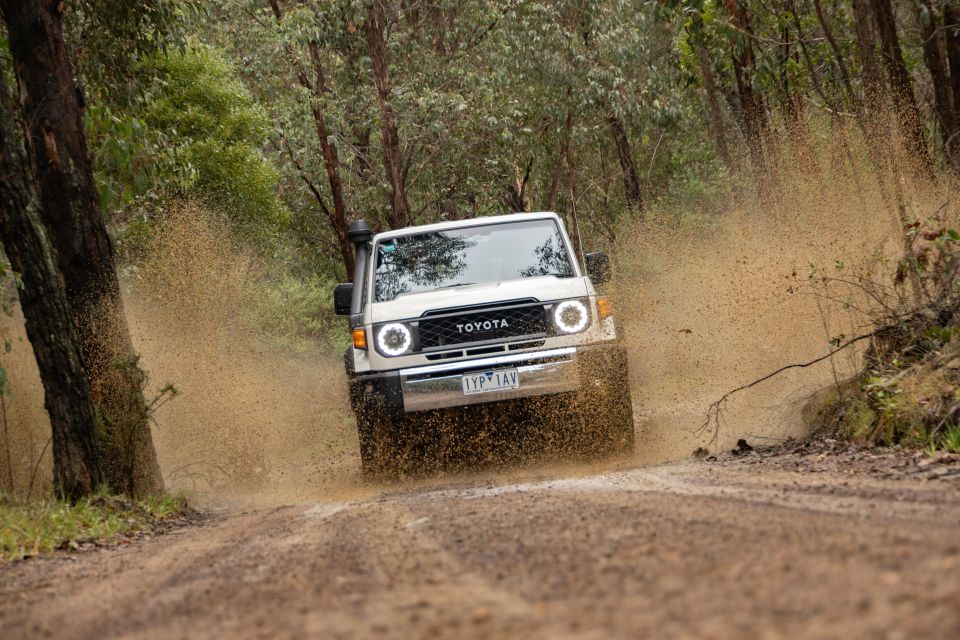
| Off-road dimensions | Toyota LandCruiser 76 GXL V8 |
|---|---|
| Track | 1555mm (front) 1460mm (rear) |
| Ground clearance | 290mm |
| Approach angle | 33.0 degrees |
| Departure angle | 23.0 degrees |
To see how the LandCruiser 70 lines up against the competition, check out our comparison tool.
The GXL on test is the highest grade available.
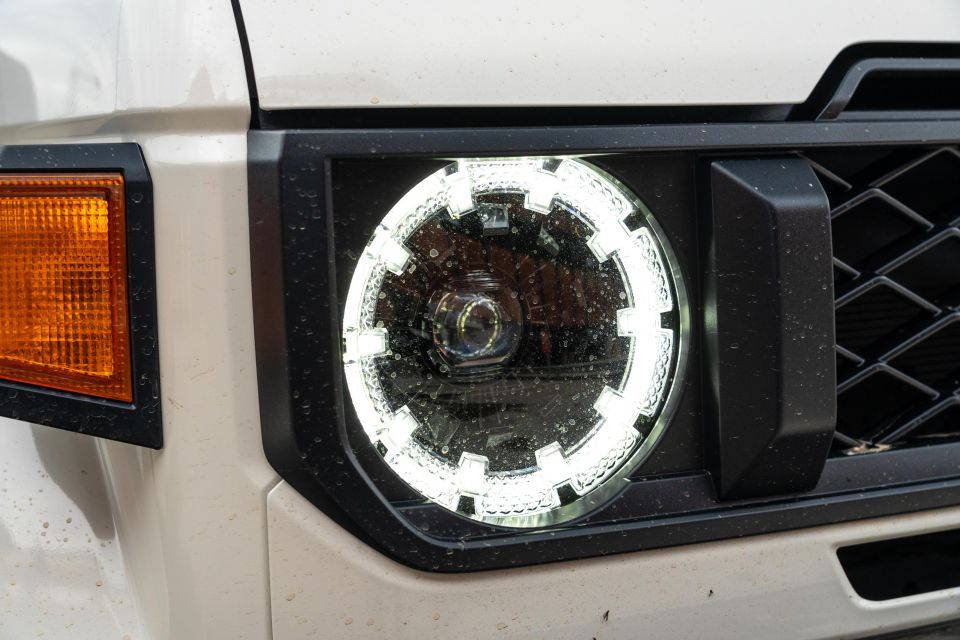
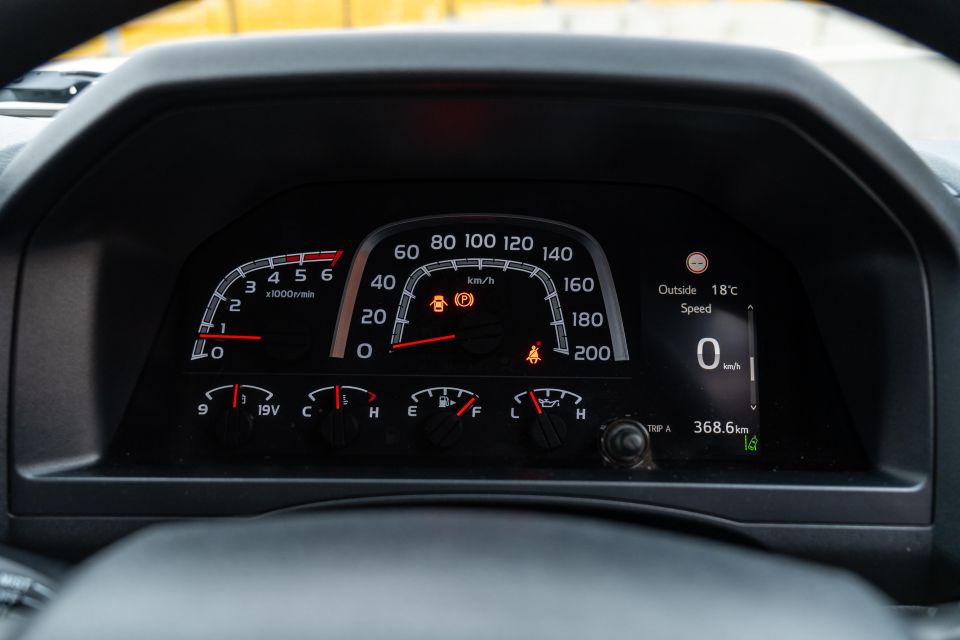
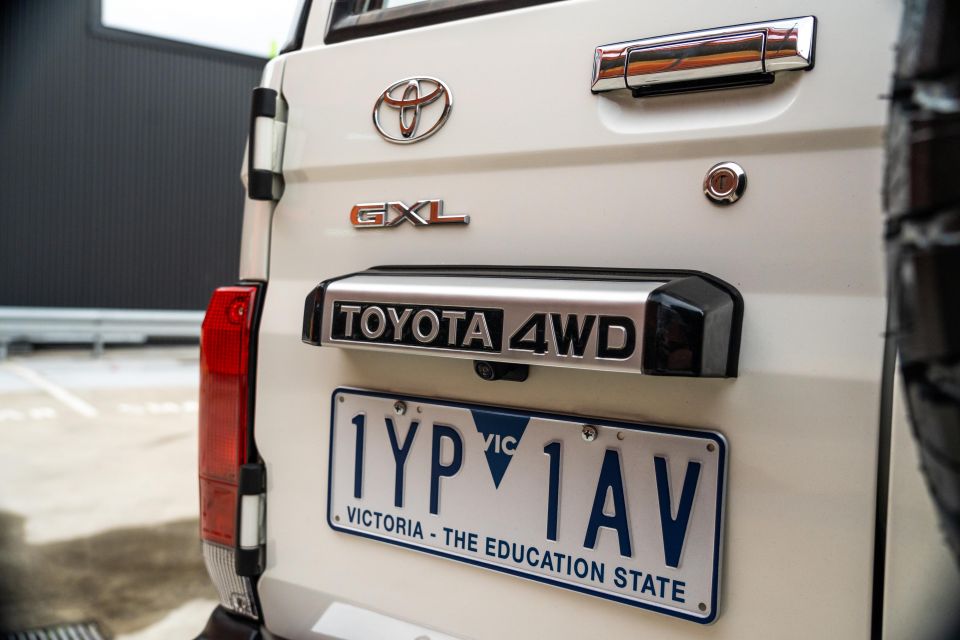

Where expert car reviews meet expert car buying – CarExpert gives you trusted advice, personalised service and real savings on your next new car.
LandCruiser 70 Workmate standard equipment:
LandCruiser 70 GX Single-Cab adds:
LandCruiser 70 GXL adds:
The LandCruiser 70 Series was tested by ANCAP back in 2016 and received five stars, however this was for the Single-Cab Cab-Chassis variant against older criteria.
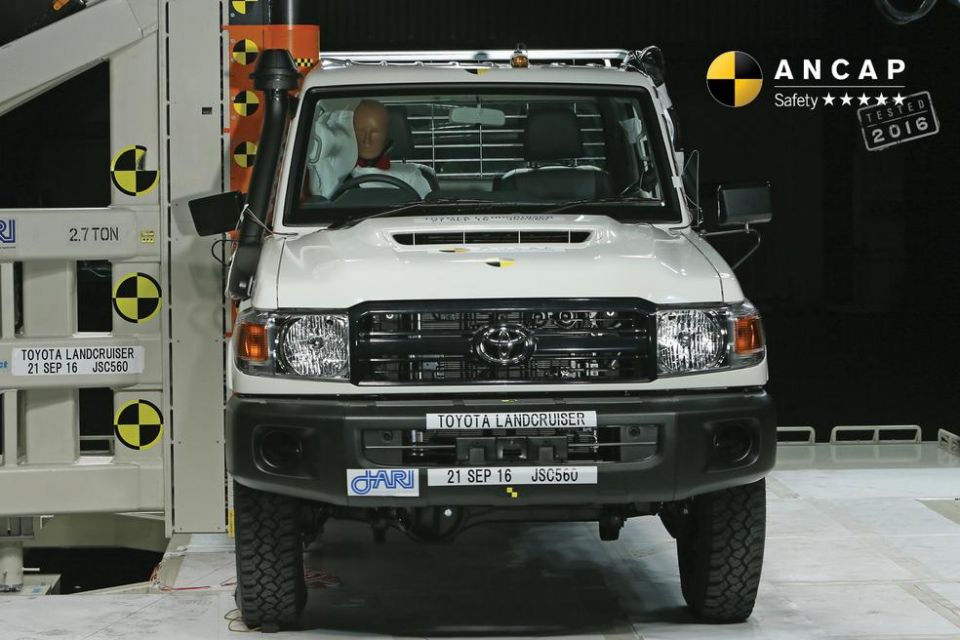
It received a front offset score of 14.75 out of 16, a side impact score of 16 out of 16, a pole score of 2 out of 2, and a seat belt reminder score of 3 out of 3.
| Safety | Toyota LandCruiser 70 Series |
|---|---|
| Frontal offset | 14.75 out of 16.00 |
| Side impact | 16.00 out of 16.00 |
| Pole test | 2.00 out of 2.00 |
| Seatbelt reminder | 3.00 out of 3.00 |
Standard safety features include:
The 76 Series Wagon gains a reversing camera.
As with the wider Toyota lineup, the 70 Series is covered by a five-year, unlimited-kilometre warranty.
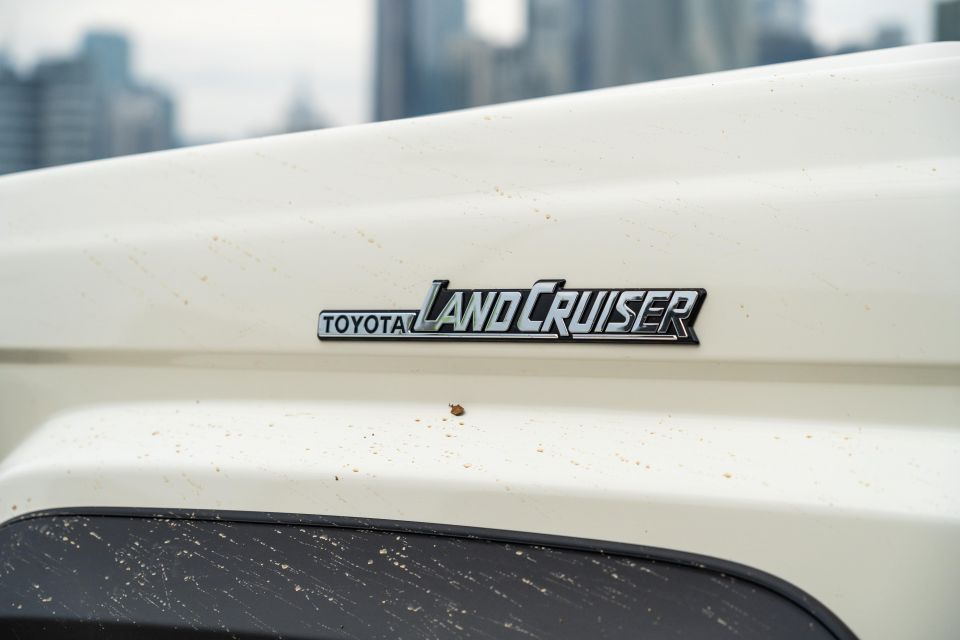
| Running costs | Toyota LandCruiser 76 GXL V8 |
|---|---|
| Warranty | 5 years, unlimited kilometres Up to 7 years driveline cover (service activated) |
| Roadside assistance | From $99 per year |
| Service intervals | 6 months or 10,000 kilometres |
| Capped price servicing | 5 years |
| Total capped price service cost | $5250 |
To see how the LandCruiser 70 lines up against the competition, check out our comparison tool.
The LandCruiser 70 is an icon, there’s no shying away from that…
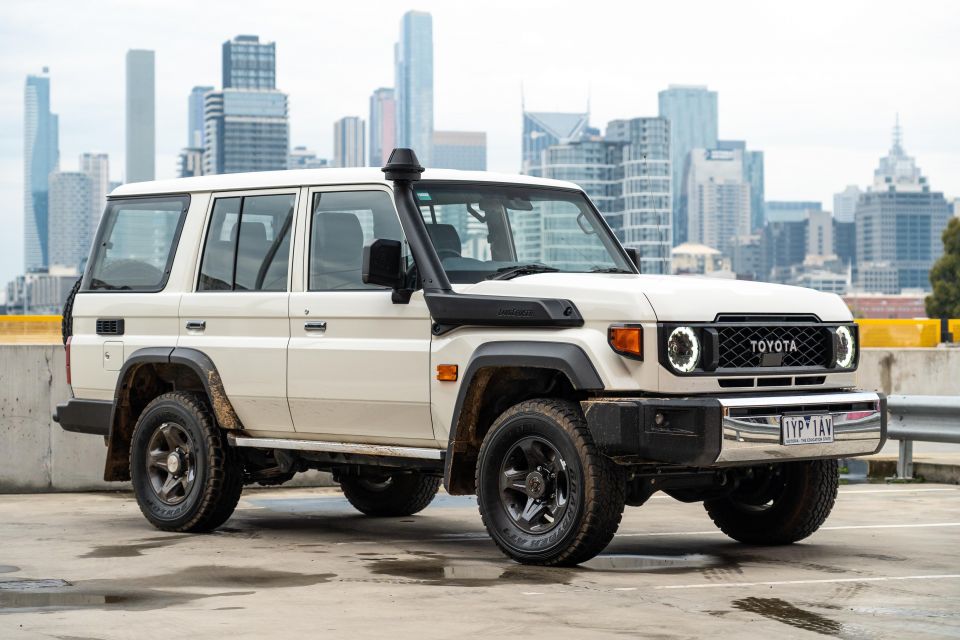
But even the greats have their stars fade, and it seems as time goes on the LandCruiser 70’s shine is starting to wane more and more.
The V8 diesel is on death row, and while the reworked 2.8-litre four-cylinder offers more power and is more efficient, it takes away one of the 70’s key points of difference; the other being its heavy-duty payload and towing abilities which the new model retains.
It really is a specialised product these days, so if you have the specific needs the LC70 really caters for, it’s still a worthwhile buy and there’s nothing else really like it in 2024 for similar money.
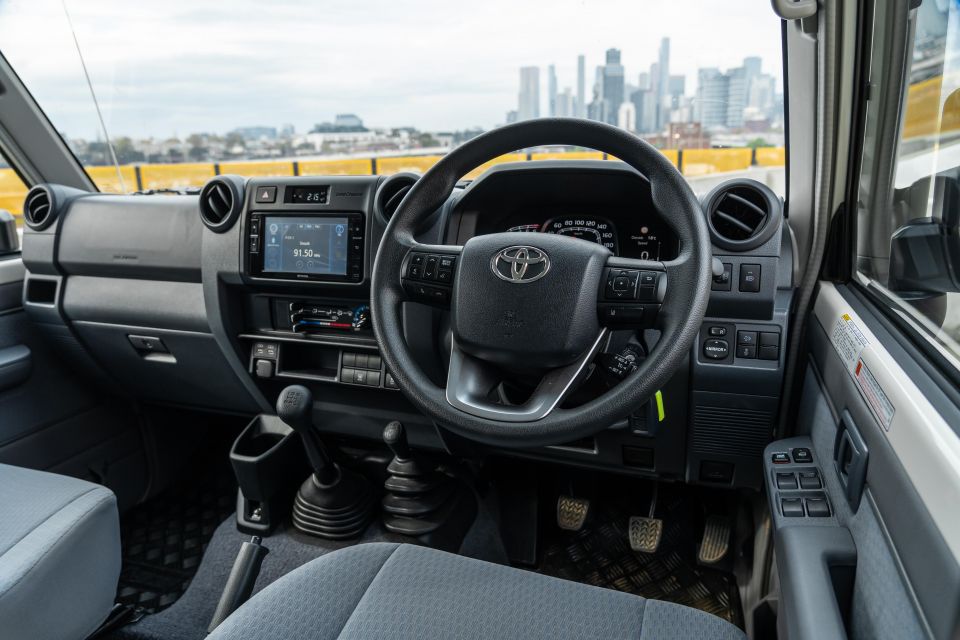
But for most people, the only reason you’d buy a LandCruiser 70 over something like a Prado or 300 Series is more or less because you want the look and the reputation.
Other cars will tow and go off-road just as well, even if they don’t quite have the unbreakable branding the LC70 does. There’s a charm that comes with that though, and it’s clear why this vehicle remains so enduringly popular.
While it doesn’t necessarily stack up well across our range of scoring metrics, there’s no doubt that for customers shopping solely on fit for purpose the LandCruiser 70 could well be a 10 out of 10.
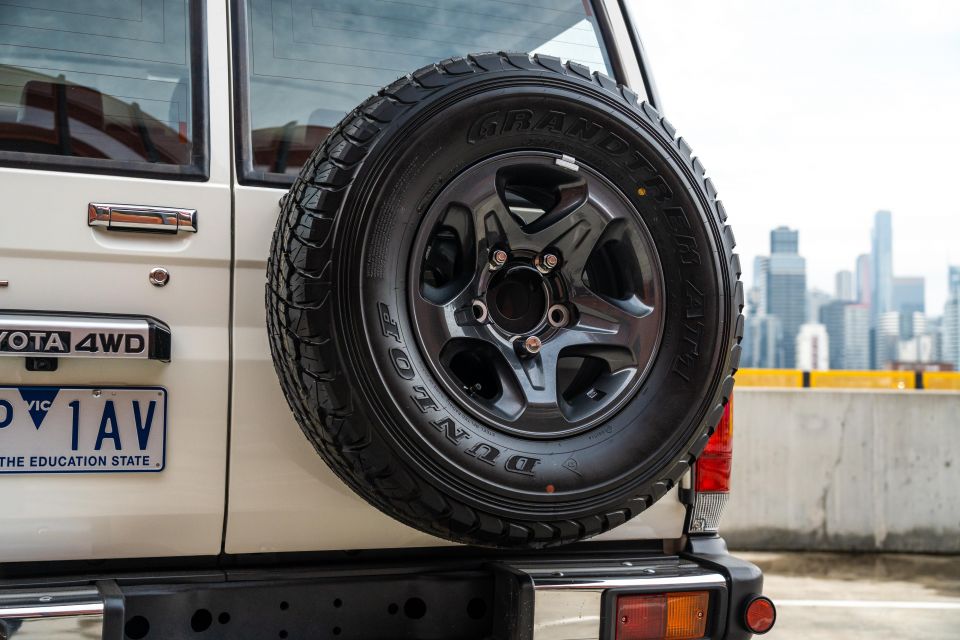
Click the images for the full gallery
MORE: Buy a Toyota LandCruiser 70 Series MORE: Everything Toyota LandCruiser 70 Series
Where expert car reviews meet expert car buying – CarExpert gives you trusted advice, personalised service and real savings on your next new car.
James is an automotive journalist based in Melbourne, Australia. Before joining CarExpert.com.au in 2020, James has worked at leading auto media outlets including Carsales and CarAdvice, as well as at Pulse agency for Ford Australia's communications team. In 2019 James made Mumbrella's 'Top 20 most prolific web authors in Australia' list after publishing 1,360 articles between March 1, 2018 and February 28, 2019 for CarAdvice. James is also an Ambassador for Drive Against Depression – an Australian charity whose mission is to support mental wellness through the freedom of driving and a shared love of cars.


Anthony Crawford
6 Days Ago


Matt Campbell
5 Days Ago


James Wong
4 Days Ago


Max Davies
2 Days Ago
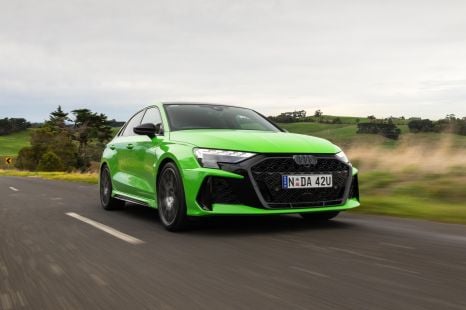

Josh Nevett
1 Day Ago
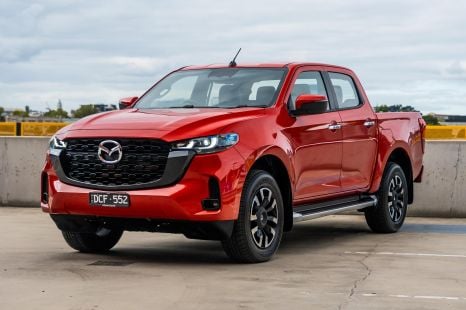

Josh Nevett
21 Hours Ago